JRP is looking for a creative and versatile individual to intern with our Communications Department. Applicants should have experience with video filming, production and editing and be willing to travel for work. JRP is a vibrant environment where innovation, passion and original thinking are rewarded. Click here for more information about the position and how to apply.
Category Archives: Blog
The Right to Know Campaign – “Missing Persons” Documentary

Last week, as part of JRP’s Right to Know Campaign and in preparation for the International Day of the Disappeared, the Community Mobilisation Department, in collaboration with the Communications Department, travelled to Teso and Lira to film the stories of individuals that are missing as a result of conflict. We highlighted the circumstances surrounding their disappearance, the plight of their family and friends after their disappearance and the advocacy activities by family and friends to find out the whereabouts of the missing person and/or truth about his or her fate. The Missing Persons documentary will focus on four stories (one from each sub region) which include Acholi, Lango, Teso and West Nile.
It has become evident that the victims are struggling (at their local levels) to seek acknowledgement for the experiences they have gone through. Those whose relatives are still missing and/or unaccounted for continue to seek answers to the whereabouts of their loved ones and the uncertainty about the fate of their relatives is a harsh reality for countless families in Northern Uganda. Countless children, siblings, spouses and children are desperately trying to find lost relatives, but not knowing whether their members are alive or dead means they are unable to obtain closure on the violent events that have disrupted their lives.
[AFG_gallery id=’44’]
The Transitional Justice Quiz Competition for Young People

Children and youth suffer grave violations of their fundamental rights as a result of war, including but not limited to their recruitment and use by armed forces and groups; killing and maiming; rape and other sexual violence; abductions; and attacks against schools and hospitals. War also deprives children and youth of their basic rights to survival and development. As reported in the Machel Study ten-year strategic review, Children and Conflict in a Changing World, the impact on children is “more brutal than ever,” and the indirect consequences of war – “the severing of basic services, and increased poverty, malnutrition and disease” – continue to exact a devastating toll. The task of restoring the lives of war-affected children and youth must therefore be central to any transitional justice processes.
The Justice and Reconciliation Project (JRP) through its Community Mobilisation department has launched a Transitional Justice IQ Gauge, an educational programme designed to connect youth from different parts of northern Uganda to build a critical mass around transitional justice in an effort to harness the energy, imagination and initiative of northern Uganda’s youth in promoting a culture of peace. Its aim is to increase awareness among the young people about the conflicts in Uganda with special focus on northern Uganda and ongoing Transitional Justice debates within the country. It also aims to inspire the stakeholders in TJ policy development and implementation to learn from the young minds and to think about how they can make a difference in the ongoing developments. JRP hopes that this will start the process of enlisting voices of the youth, something that is currently missing in the ongoing TJ debates. In the long run, this process will form the basis for building advocacy capacity among the young people as they start forming alliances with each other on “what the young people are saying” on critical issues around TJ.
This year’s competition was themed, “Every Body Counts: Voices of Young People in Transitional Justice” and began in May will end in September 2012 with the announcement of the regional winners. This year, the quiz will target twenty schools within Acholi Sub Region and then will expand to other schools in Lango, Teso and West Nile in the coming years. The Community Mobilisation team is currently conducting dialogues in all the participating schools and engaging with the students on key thematic issues such as reparations among others. Stay tuned for more updates and a JRP publication focusing on youth and transitional justice.
[AFG_gallery id=’43’]
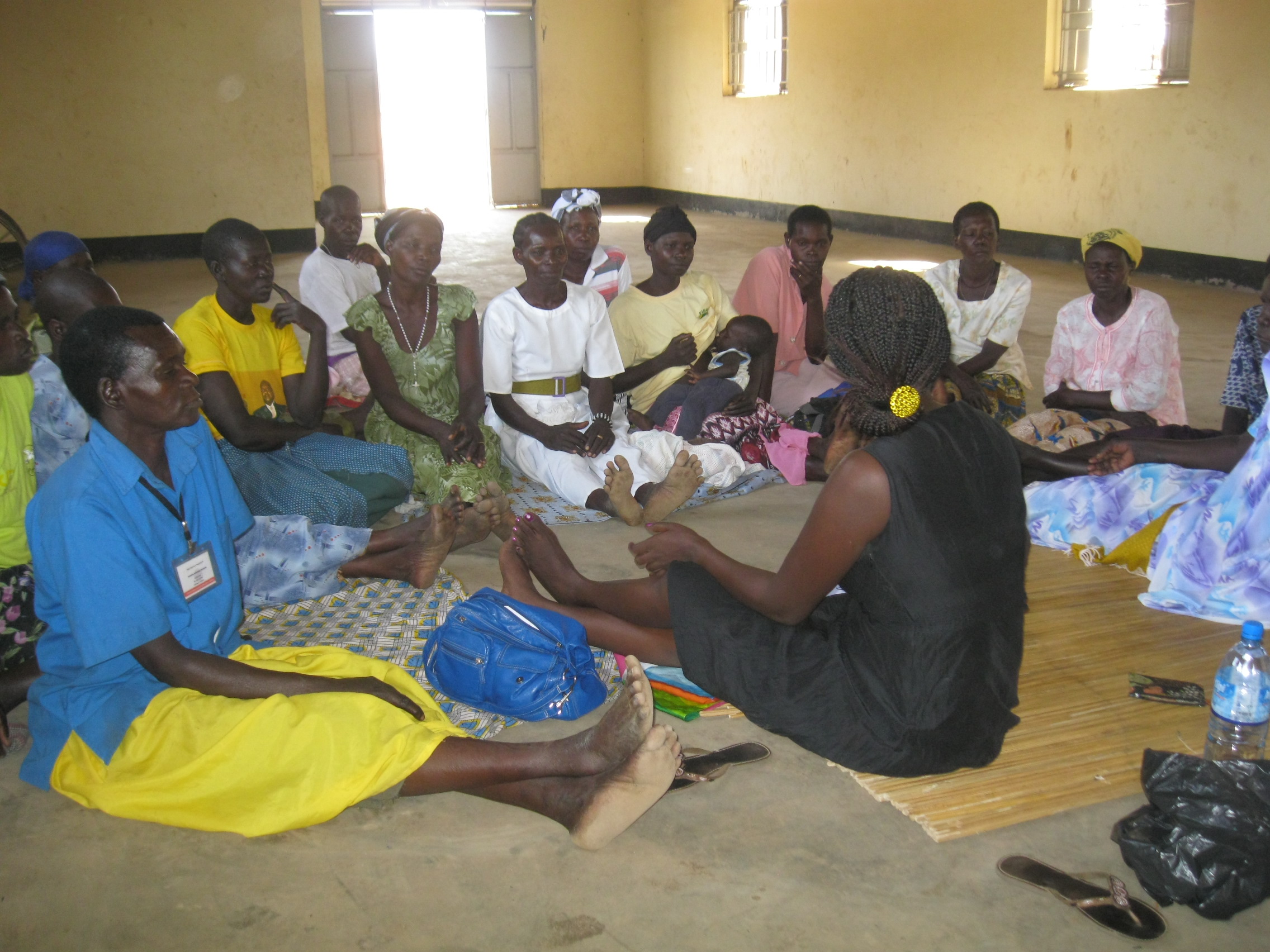
Policy brief on amnesty released
JRP is pleased to announce the release of its latest policy brief, Who forgives whom? Northern Uganda’s grassroots views on the Amnesty Act.
After more than twelve years in force, Uganda discontinued blanket amnesty for reporters on 25 May 2012 by allowing Part 2 of the Amnesty Act of 2000 to lapse. The continued relevance of Uganda’s Amnesty Act had been fiercely debated in recent months in high-level discussions between government and civil society, with many asking, “What should be the future of the Amnesty Act?”
Recognizing the absence of grassroots voices in many of these debates, especially from a gendered perspective, JRP carried out a series of consultations from 21-27 March 2012 in conflict-affected regions of northern Uganda — including West Nile, Lango, Acholi and Teso — to discern the views of those most directly impacted by and benefiting from the Act on its role, achievements and continued relevance. The consultations unveiled mixed views at the grassroots level on the past and present relevance and equity of the Act, yet reached overwhelming general consensus for the renewal of the Act with amendments. Following the government’s decision to abolish amnesty, this brief seeks to contribute to the ongoing consultative and policy-making process to integrate elements of conditional amnesty into a national TJ policy.
Please visit http://justiceandreconciliation.com/2012/06/who-forgives-whom-northern-ugandas-grassroots-views-on-the-amnesty-act/ to read the full briefing.
For comments or questions, please write to info@justiceandreconciliation.com.
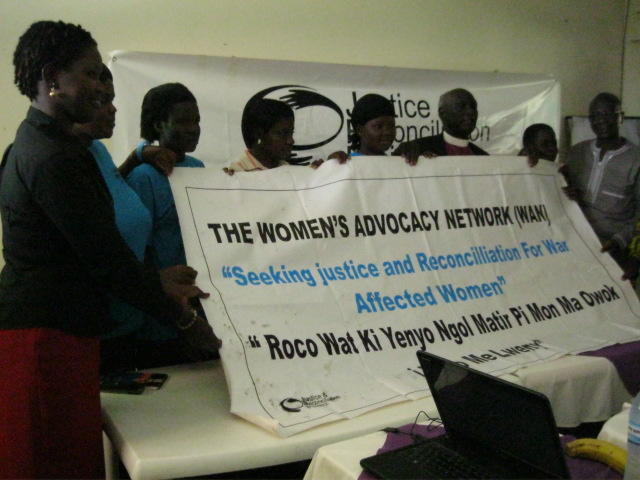
Introducing the Women’s Advocacy Network (WAN) at JRP
We are pleased to introduce the Women’s Advocacy Network (WAN), an initiative of the Justice and Reconciliation Project (JRP), which was officially launched May 25th in Gulu, northern Uganda.
The WAN is a forum where war-affected women come together to advocate for justice, acknowledgment and accountability for gender-based violations inflicted upon them during war in northern Uganda. It was formed in May 2011 by JRP with the aim of empowering women survivors to participate in post-conflict policy debates and to engage grassroots communities in gendered discussions on reintegration and reconciliation.
JRP’s field observations since 2006 have explored the unique challenges facing women in northern Uganda and the need for the inclusion of their voices in ongoing developments in transitional justice. A group of war-affected women, who were engaged in a storytelling project at JRP, proposed the establishment of an advocacy group to serve as a platform through which female leaders would be empowered to engage in advocacy for justice and peace. The WAN was created with the goal of bridging the existing gaps in gender justice.
To learn more about the Women’s Advocacy Network (WAN) at JRP, please see the attached brochure or contact the JRP Gender Justice department at +256(0)471433008 or email info@justiceandreconciliation.
New vacancy: Gender Justice Team Leader
The Justice and Reconciliation Project (JRP) seeks a qualified Gender Justice Team Leader.
To learn more about this position and how to apply, please visit http://
To apply, please send an email to recruitment@justiceandreconciliation.com. Attach a CV, strong cover letter, academic qualifications, a writing sample (where possible) and a list of at least three referees to be contacted in case of shortlisting. All applications should be addressed to the Programme Coordinator. The closing date for applications is 28th MAY 2012.
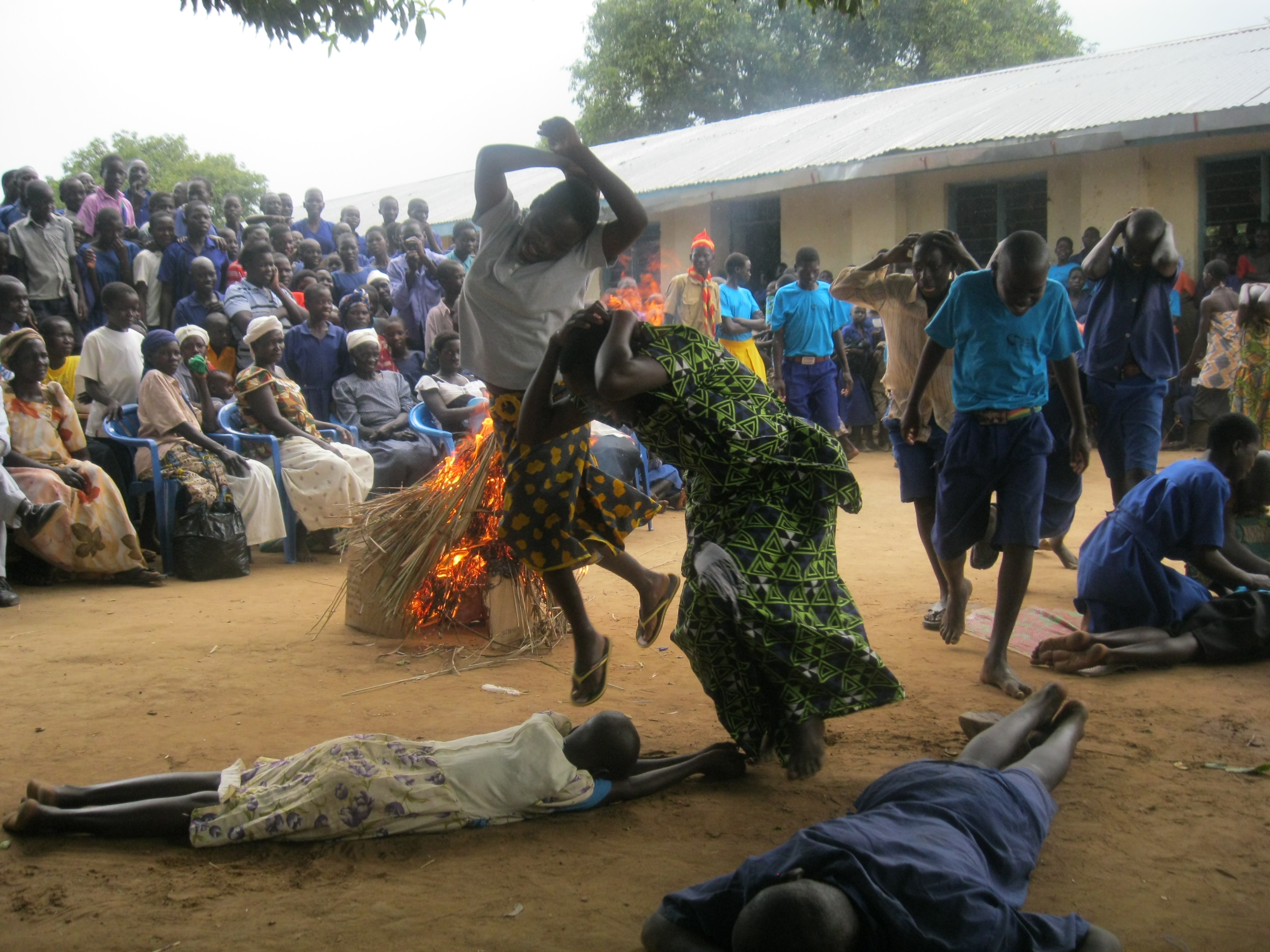
Video of the Abia community theatre performance
[yframe url=’http://www.youtube.com/watch?v=5BN7WO-kDcI’]
Thanks to our new Communications Intern, Jimmy Oringa, we are going through footage taken in the last 10 months and editing it for our website and YouTube account. The latest upload is from the Abia community theatre performance on September 28, 2011.
On that date, the Abia Children for Peace, Restoration and Reconciliation Club at Abia Primary School presented a community theatre performance on the 2004 Abia massacre and its impact on children and youth. The drama’s theme and script were entirely drafted by the actors. You can view the video above or by visiting http://justiceandreconciliation.com/2012/05/jrp-abia-community-theatre-performance-28sept2011/.
In the next 2 weeks we hope to upload an advocacy video from a February victims’ exchange and footage from the community theater performance in Yumbe last year.
Also, we are still seeking a Documentary Filmmaker to volunteer with us and work on a video documentation. You can learn more at http://justiceandreconciliation.com/about/jobs-internships/ or by emailing info@justiceandreconciliation.com.
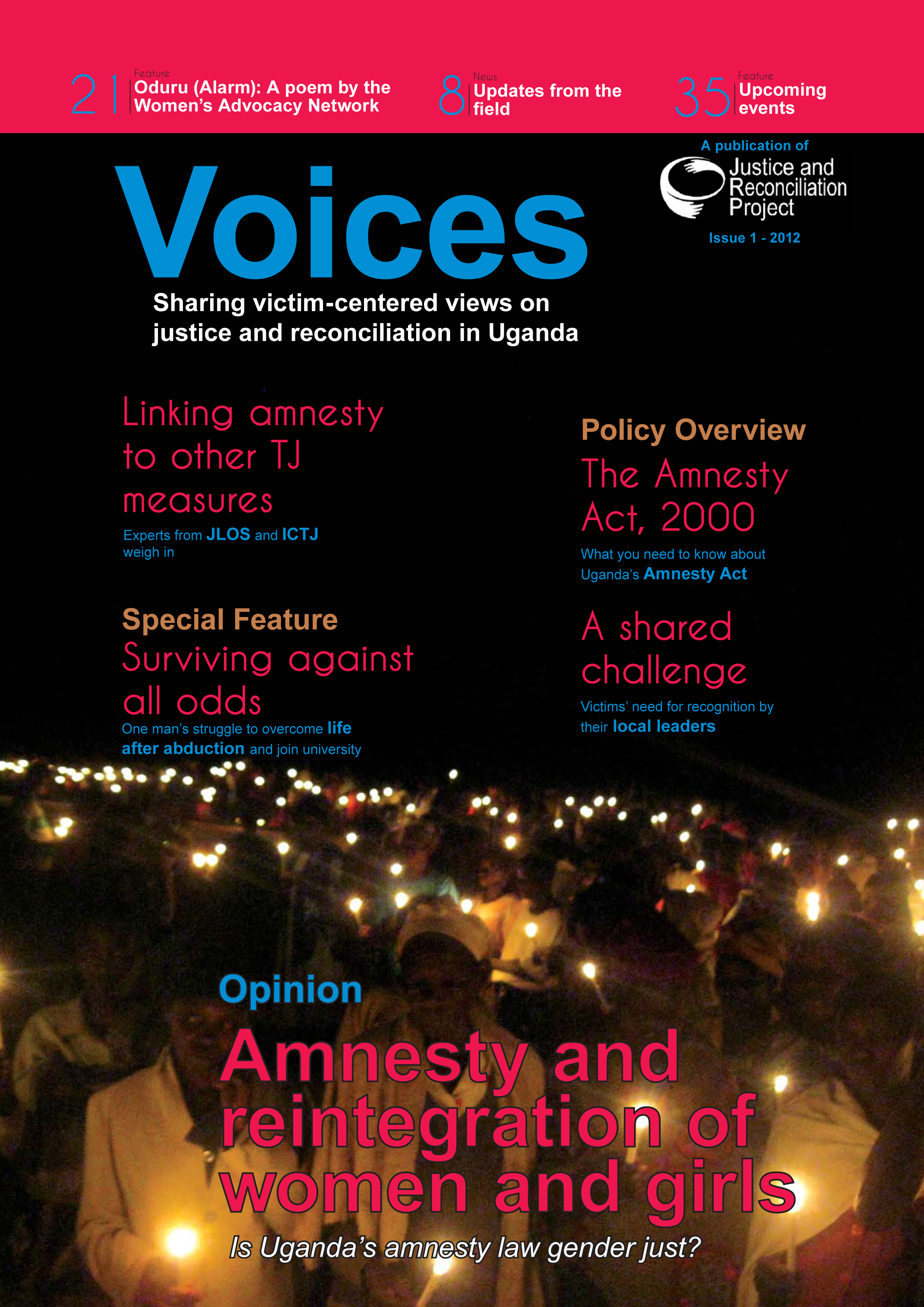
Introducing JRP’s Voices Magazine (Issue 1 – Amnesty)
- Cover of the first edition of JRP’s Voices magazine
Click here to view the full issue.
JRP is pleased to announce the release of its latest quarterly publication, Voices magazine. Our mission is to empower conflict-affected communities to participate in processes of justice, healing and reconciliation, and this magazine aspires to do just that. By providing a regular, open platform for victims and key stakeholders to dialogue on local and national transitional justice developments, we will be “sharing victim-centered views on justice and reconciliation in Uganda” each quarter.
The theme of this first issue is amnesty. With Uganda’s Amnesty Act up for expiration, renewal or renewal with amendments on 24 May, we have sought to present the views of the war-affected communities where we operate. In this issue, key stakeholders like Michael Otim of the International Center for Transitional Justice (pg 13), Ismene Nicole Zarifis, International Technical Advisor on TJ for JLOS (pg 6,) and members of the JRP team address the important question: What should be the future of Uganda’s Amnesty Act? Like all of our work, we hope this collection of views contributes to the policy-making process currently taking place in Kampala, and links the grassroots with the decision-makers.
We hope to hear from you on what you think of this first issue. To share your comments, please write to info@justiceandreconciliation.com or SMS +256(0)783300103. Your comments might just appear in the next edition!
We also welcome article submissions of no more than 1,500 words for future issues. The next issue will focus on reparations for victims of conflict.
Click here to view the full issue.
Note: If printing on a B&W printer, we recommend you print this grayscaled version.
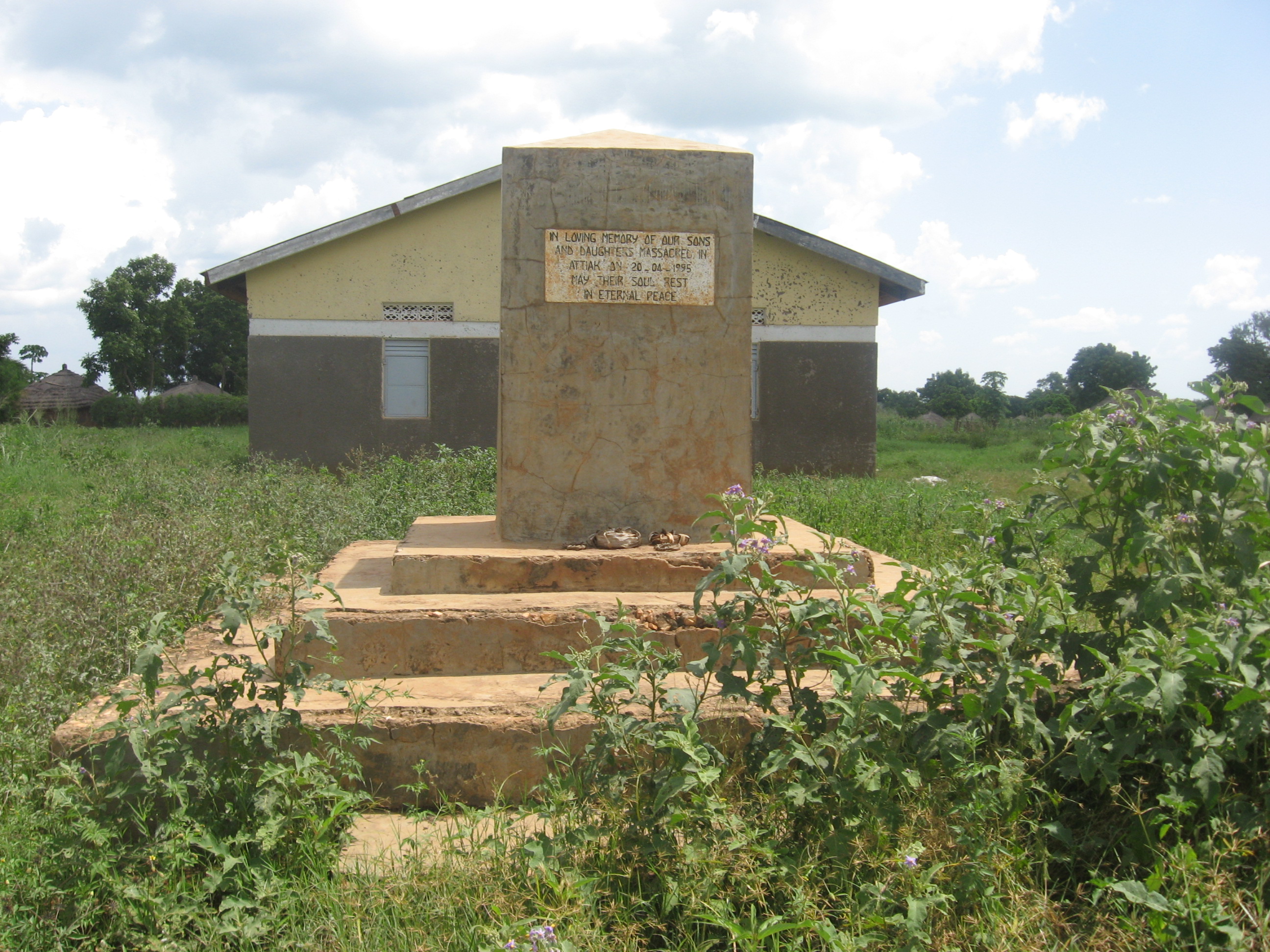
New video of the Attiak massacre memorial prayers
As part of our objective to preserve memory of conflict-affected communities through documentation, JRP’s Community Documentation department has produced video coverage of the 17th annual Attiak massacre memorial prayers, which took place on April 20th. The footage has been divided into two parts, with both available below, here and on our YouTube page: JRPUganda.
[yframe url=’http://www.youtube.com/watch?v=XoaY28XUxpg’] [yframe url=’http://www.youtube.com/watch?v=R4lpjfoN8rA&feature=relmfu’]
The prayers were attended by the President of Uganda, H.E. Yoweri Museveni, and the Deputy Speaker of Parliament, Hon. Jacob Oulanyah. Immediately following a performance by the Attiak Massacre Survivors Association, President Museveni delivered 400,000 Ugandan shillings in cash to the association. During his speech, he further pledged 50 million Ugandan shillings ($20,000 USD) to the group.
While we welcome this acknowledgment of need for the victims in Attiak, the President’s actions further demonstrate the urgency for a comprehensive, transparent reparations policy and programme for all victims of conflict in Uganda. For more information on our recommendations for reparations, please see our policy brief, “Pay Us so We Can Forget: Reparations for Victims and Affected Communities in Northern Uganda.”
For more information on the 1995 Attiak massacre, please see our field note, Remembering the Atiak Massacre.
Coming Soon: Northern Uganda TJ Monitoring Survey
It is almost four years now that northern Uganda has experienced relative peace following the relocation of the LRA to DRC and CAR. The majority of the population that had hitherto been displaced into IDP camps have now returned to their homesteads and resumed life in the post-conflict phase. Apart from land conflicts which are still rampant, many people seem to have moved on with their lives despite the past violence and a large number of atrocities that were committed during the conflict. There have been few reports of revenge attacks by victims against ”alleged perpetrators.”
So is this an indicator that northern Uganda is quickly putting the past behind and moving forward? Maybe yes, maybe no.
To find out, the JRP Community Documentation department intends to carry out a northern Uganda transitional justice monitoring process.
The objective of the Transitional Justice Monitoring Survey is to track the progress of justice and reconciliation in northern Uganda. The first phase of the project will be focused on Gulu district. The results of this survey will be used in our advocacy efforts and policy recommendations to further the interests of the communities and victims of the conflict.
Using a quantitative survey, we will interview 598 households across all 23 sub-counties and 120 parishes in the district. Questions focus on issues such as missing persons, community dispute resolution, traditional justice, memorialization, reparations, security, and formerly-abducted persons.
In the coming weeks, we will release the findings of the pilot conducted in Gulu district, and in the coming months, results from other districts and sub-regions. Stay tuned!


